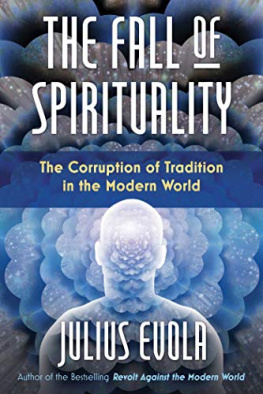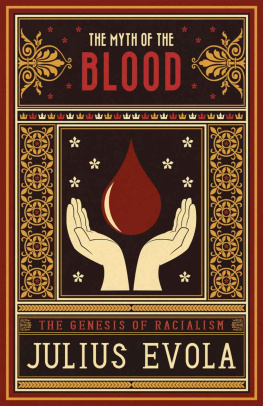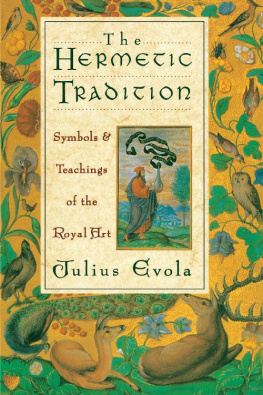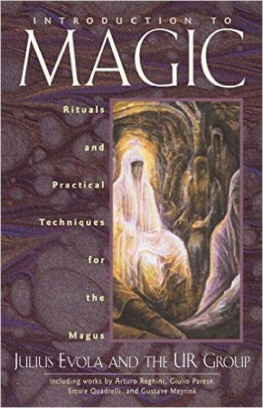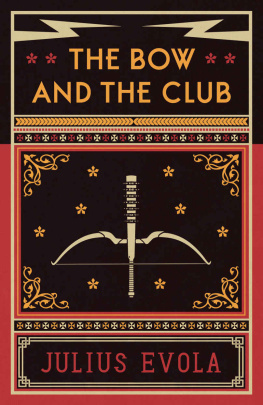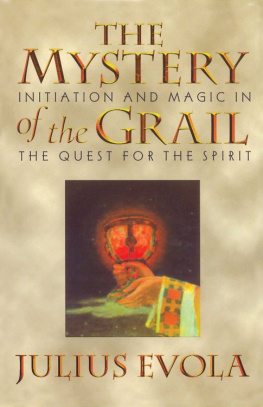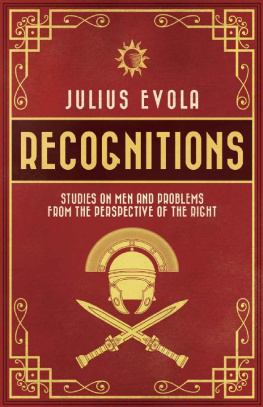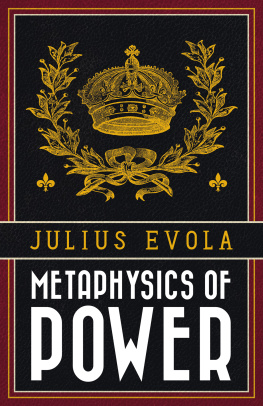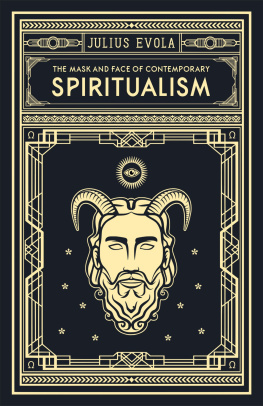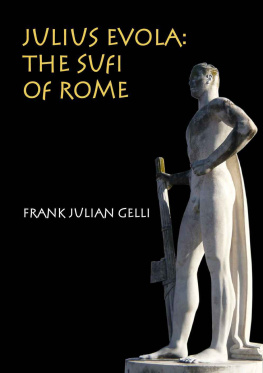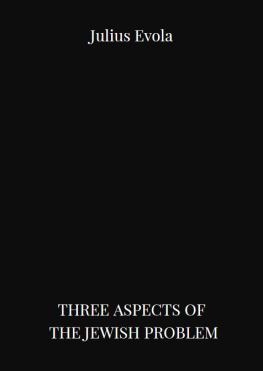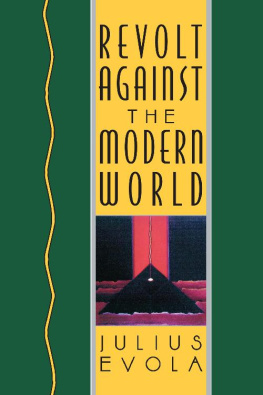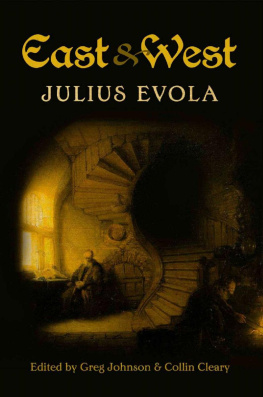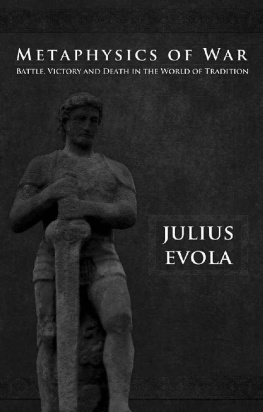Julius Evola - The Fall of Spirituality: The Corruption of Tradition in the Modern World
Here you can read online Julius Evola - The Fall of Spirituality: The Corruption of Tradition in the Modern World full text of the book (entire story) in english for free. Download pdf and epub, get meaning, cover and reviews about this ebook. year: 2021, publisher: Simon and Schuster, genre: Religion. Description of the work, (preface) as well as reviews are available. Best literature library LitArk.com created for fans of good reading and offers a wide selection of genres:
Romance novel
Science fiction
Adventure
Detective
Science
History
Home and family
Prose
Art
Politics
Computer
Non-fiction
Religion
Business
Children
Humor
Choose a favorite category and find really read worthwhile books. Enjoy immersion in the world of imagination, feel the emotions of the characters or learn something new for yourself, make an fascinating discovery.
- Book:The Fall of Spirituality: The Corruption of Tradition in the Modern World
- Author:
- Publisher:Simon and Schuster
- Genre:
- Year:2021
- Rating:5 / 5
- Favourites:Add to favourites
- Your mark:
- 100
- 1
- 2
- 3
- 4
- 5
The Fall of Spirituality: The Corruption of Tradition in the Modern World: summary, description and annotation
We offer to read an annotation, description, summary or preface (depends on what the author of the book "The Fall of Spirituality: The Corruption of Tradition in the Modern World" wrote himself). If you haven't found the necessary information about the book — write in the comments, we will try to find it.
The Fall of Spirituality: The Corruption of Tradition in the Modern World — read online for free the complete book (whole text) full work
Below is the text of the book, divided by pages. System saving the place of the last page read, allows you to conveniently read the book "The Fall of Spirituality: The Corruption of Tradition in the Modern World" online for free, without having to search again every time where you left off. Put a bookmark, and you can go to the page where you finished reading at any time.
Font size:
Interval:
Bookmark:
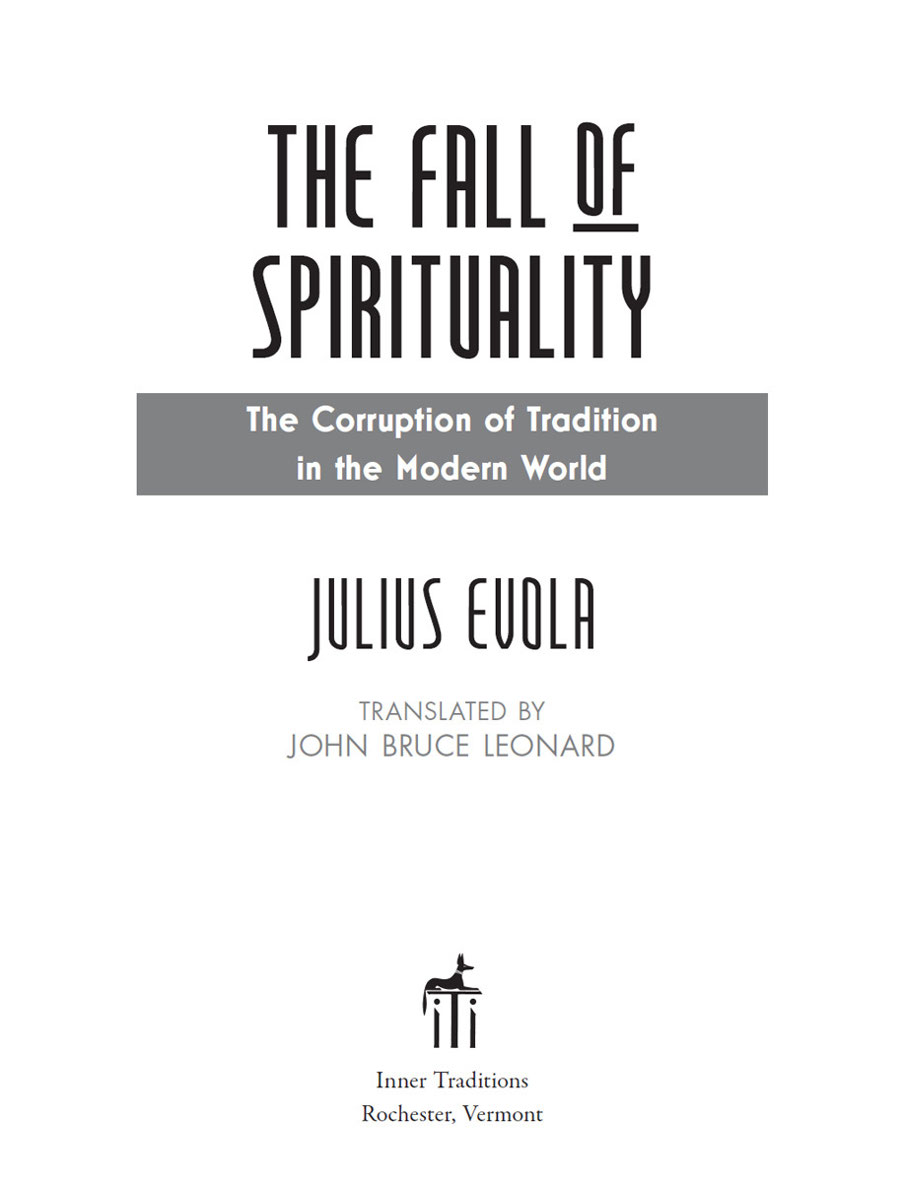
Editors Note Regarding This Edition
The Fall of Spirituality is a translation of Julius Evolas Maschera e volto dello spiritualismo contemporaneo (Mask and Face of Contemporary Spiritualism), which appeared in its third version in 1971, only a few years before the authors death. The text presented here contains updates based on the corrected fourth edition of 2008,*1 including the introductory essay by Hans Thomas Hakl, Julius Evola and Modern Spirituality.
For this English edition, names of persons mentioned in the text have been expanded to their full form, and more complete bibliographic citations have been provided in the notes. Whenever possible, corresponding English bibliographic references and sources have been given. All explanatory translations of foreign terms (e.g., from Latin, Greek, or German) that appear in square brackets within the text itself have been supplied by the editor; all footnotes in square brackets are likewise the editors work.
JULIUS EVOLA AND MODERN SPIRITUALISM
HANS THOMAS HAKL
The question of how one might distinguish authentic schools of wisdomthose with real access to transcendent forcesfrom the schools that are merely pseudo-organizations has always been a highly contentious topic among esotericists. For Julius Evola, this question was one of central importance from an early point in his life. At the beginning of the 1920s, in the midst of his so-called philosophical phase, Evola came into contact with the teachings of Count Hermann Keyserling and his School of Wisdom (Schule der Weisheit) in Darmstadt, Germany. Even by that time, Evola had already developed serious demands when it came to esoteric groups. Above all, he required that genuine training had to take place in the form of self-realizations (autorealizzazioni) that have their basis in the absolute autonomy of the personality, as opposed to their being accomplished in a participation mystique (Levy Brhl). Evolas requirements in this regard can be traced back to the situation of his deceased friend Carlo Michelstaedter and, as Evola clearly stated, Keyserlings School of Wisdom did not live up to them.
Evolas verdict on the teachings of Rudolf Steiner and the Anthroposophical Society at this time was even more harsh. He specifically attacks Steiners clairvoyance, which he contrasts with the intellectual intuition of Scholasticism. Unlike Steiners spiritual science, intellectual intuition concerns not only psychic regions but also penetrates into the highest, purely spiritual realm of ideas. Evola further criticizes the anthroposophists belief in progress, their ideology of reincarnation and karma, and their concepts of morality, humility, and grace, which are related to Steiners Christocentric worldview.
As the result of the adaption of the Tao Te Ching that he published, Evola also became acquainted in about 1924 with Decio Calvari, who was the head of an independent Theosophical lodge in Rome. In Calvari he definitely found an interesting conversation partner, and one who introduced him to Tantrism, but the Theosophical Society itself did not escape Evolas criticism, although some years would go by before he fully formulated his critique in a comprehensive way. Instead of a genuine teo-sofia (wisdom of god), Evola found Theosophy merely to be a system of intellectual concepts and imaginations (un sistema di concetti e imaginazini). Moreover, he condemned the mediumship of Madame Blavatsky, the societys founder, as well as the conceptions that theosophy promoted of karma and reincarnation.
Evolas rejection of the Theosophical Society was reinforced by his reading of Ren Gunons very sharply worded book Theosophy: History of a Pseudo-Religion, wherein Gunon leveled the accusation that the teachings of Helena P. Blavatsky were devoid of any coherent doctrine whatsoever and had simply been constructed out of smoke and mirrors, so to speak.
Another book by Gunon, The Spiritist Fallacy, was particularly important for Evolas efforts to determine convincing criteria for authentic spiritual groups. In this book Gunon very clearly laid out the danger that emanated from spiritism, especially since it presented itself as being scientific and experimentally verified. For Gunon, however, spiritism was just as much of a pseudo-religion as theosophy. In The Spiritist Fallacy, Gunon uses the term neo-spiritualism, which Evola also adopted, in reference to what the French esotericist termed the pseudo-religious worldviews that emerged in the first half of the nineteenth century in the United States and subsequently spread into Europe. He saw them as errant religious endeavors that received their main impetus from the modern faith in science and not from any inwardly experienced spirituality. Gunons touchstone for a genuine spirituality was the pure metaphysics that he had derived from his own study of Eastern religions, together with what he would have received directly from his esoteric teachers.
It was these and similar criteria that Evola firmly had in mind when he and Arturo Reghini founded the magical order known as the UR Group in 1927. In his editorial preface to the first issue of the journal UR, which featured monographs by members of the group, Evola already made clear what, in his view, is the crucial matter for those who would involve themselves in authentic esoteric groups. This concerns the problem of all problems, and the anguish of all anguishes: What am I?
In this search for the innermost core of the I, however, one must renounce all of the false consolations of philosophy and religion. One can no longer play hide-and-seek with oneself or in front of oneself, for the imperative is much more to expose the game and no longer play it; to foil the lure, give up the illusion; shatter the compromises and be at daggers drawn with oneself... with nothing to lean on, nowhere to go. And a chilling breath speaks the hard words: Do not believe, do not love, do not hope.
Evola then goes on to speak of the
absurdity of claiming that the anguish that is tormenting you can vanish while you remain what you are....
You must be transformed. You must be integrated and elevated. What really faces the I is not a problem but a task. The solution is strictly identical to a state to be realized by transforming your being. Know yourself means Realize, create yourself.
This realization is then understood as radically positivenothing conceptual, moral, or sentimental about it, utterly independent of any specific human belief, faith, or philosophyand a pure matter of experience.
But this is an experience that radically alters the I, because the I becomes one with the experienced object, and thus it becomes wisdom and creates power. And for this way of metaphysical accomplishment, this self-realization above all that is proper to man, there is a science, precise, rigorous, methodical, transmitted as one flame to another, from initiate to initiate in an unbroken chain.
This science must also lead to (high) initiation, which according to Evola brings with it a complete transformation of consciousness and of state, creating something out of the human being that goes beyond the human. This also entails the achievement of a continuum of consciousness beyond sleep and even beyond (bodily) death. What becomes Evolas actual criterion for the authenticity of an esoteric group, then, is the spiritual power necessary to prepare the way for such an initiation and to transmit it.
Evola had become acquainted with Gunons conception of the Integral Tradition in the early 1920s through Arturo Reghini, and he felt an increasing connection with it. It was therefore within the context of the Integral Tradition that the concept of initiation began to take on a more concrete shape for him. In his primary work on the traditional worldview, Revolt Against the Modern World, Evola devoted a chapter to this topic, although he shifted his emphasis to the subject of royal initiation. Now Evola regards only traditional schools of wisdom as being authentic, and it was only within such schools that an effective initiation could take place. By the same token, wisdom schools that do not represent a traditional ideology automatically become neospiritual pseudo-organizations for him.
Font size:
Interval:
Bookmark:
Similar books «The Fall of Spirituality: The Corruption of Tradition in the Modern World»
Look at similar books to The Fall of Spirituality: The Corruption of Tradition in the Modern World. We have selected literature similar in name and meaning in the hope of providing readers with more options to find new, interesting, not yet read works.
Discussion, reviews of the book The Fall of Spirituality: The Corruption of Tradition in the Modern World and just readers' own opinions. Leave your comments, write what you think about the work, its meaning or the main characters. Specify what exactly you liked and what you didn't like, and why you think so.

